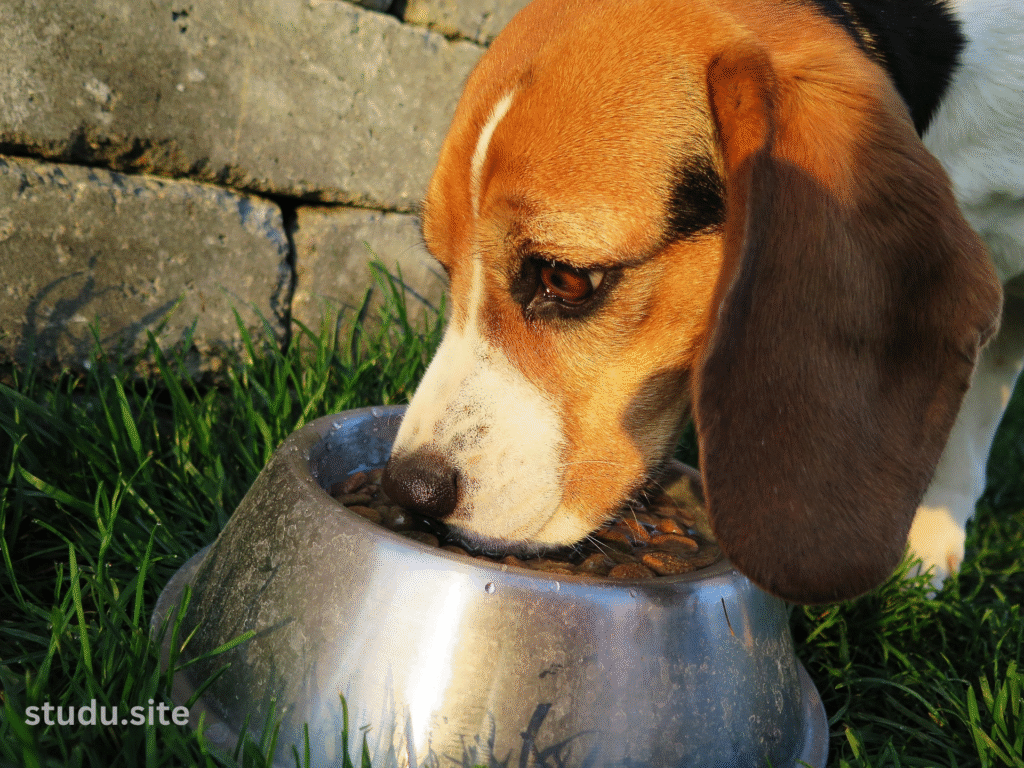Introduction: Can Dogs Have Pickles?
As a dog owner, you’ve probably caught your furry friend eyeing a tangy pickle slice during a meal or picnic. Due to their crunchy texture and strong flavor, pickles may appear as a tempting treat to share with your dog. But may dogs have pickles? The answer is not a resounding yes or no. Pickles are not toxic to dogs by nature, but they also present some risks that make them a less-than-ideal snack. This blog post delves into the safety, advantages, health issues, and right manner of feeding pickles to your dog, assisting you in making decisions for your pet’s diet.

Are Pickles Safe for Dogs?
Plain dill pickles made from cucumbers, in small quantities, are safe for dogs, but only in a given context. Pickles are cucumbers that are fermented or brined using a mixture of vinegar, salt, and spices. Cucumbers are harmless to dogs, but the pickling process adds ingredients to which your dog might be adverse. Let’s take a closer look.
Types of Pickles to Consider
-
Dill Pickles: These are the most popular and usually have dill, vinegar, and salt. Pure dill pickles with no added spices can be safer in very small quantities.
-
Bread-and-Butter Pickles: These sweet pickles have sugar and spices that will disturb a dog’s stomach or add to weight gain.
-
Spicy Pickles: Garlic, onions, or hot pepper-flavored pickles are not safe, as these are poisonous to dogs.
-
Homemade Pickles: Homemade pickles are possibly a safer choice if you keep control of ingredients and don’t use toxic additives.
-
Low-Sodium Pickles: Low-sodium pickles are healthier than high-sodium ones but must be used with care for other ingredients.
Why Moderation is Critical
Even safe pickles need to be an occasional treat, rather than a regular part of your dog’s diet. The American Kennel Club (AKC) recommends treats, including human foods such as pickles, to make up no more than 10% of a dog’s daily diet. Most of their nutrition should be from a well-balanced, vet-recommended dog food specifically designed for their needs.
Potential Benefits of Pickles for Dogs
Pickles are not very nutritious for dogs mainly because their main component—cucumbers—retains some of its value upon pickling. Nevertheless, in moderation, pickles can offer:
-
Hydration: Since cucumbers contain 95% water content, pickles retain a bit of hydrating capacity, particularly for working dogs on hot summer days.
-
Fiber: There is a tiny amount of fiber found in pickles that can contribute to digestion in small amounts.
-
Low Calories: Plain pickles are low in calories, and therefore a more appropriate treat choice compared to high-fat human foods such as cheese or ham.
-
Crunchy Texture: Dogs love the pleasing crunch, and this can be a rewarding, stimulating treat for training.
Although these slight benefits exist, even better options such as raw cucumbers or carrots offer the same benefits without the dangers of feeding pickles to dogs.
Health Risks of Feeding Pickles to Dogs
Pickling involves the addition of ingredients that can be very unhealthy for dogs, particularly when consumed regularly or in excess. The main issues follow:
1. Too Much Sodium
Pickles are notoriously salty from the brining process and can hurt dogs:
-
Salt Poisoning: Too much sodium can cause salt poisoning, with symptoms ranging from vomiting, diarrhea, and lethargy to tremors or seizures. In extreme situations, it can prove to be fatal.
-
Kidney and Heart Strain: Prolonged high sodium consumption may exacerbate kidney disease or heart disease, especially in older dogs or certain breeds such as Pugs or Shih Tzus.
-
Excessive Thirst: Excessive salt concentration leads to excess thirst and urination, straining your dog’s urinary system.
WebMD Pets reveals that one pickle spear may hold 300–800 mg of sodium, which is more than twice the safe daily amount for small dogs (about 100 mg).
2. Poisonous Seasonings and Additives
Numerous pickles contain additives and seasonings that are poisonous or dangerous to dogs:
-
Garlic and Onions: Used in many pickle recipes, these are poisonous and may lead to hemolytic anemia, killing red blood cells. The symptoms are weakness, pale gums, and increased rate of breathing.
-
Spices: Seasonings such as mustard seeds, turmeric, or chili peppers can upset a dog’s stomach or cause gastrointestinal upset.
-
Vinegar: Not toxic, but excessive vinegar can cause stomach upset or acid reflux in sensitive canines.
3. Sweet Pickle Sugar
Added sugar in bread-and-butter or sweet pickles can lead to:
-
Obesity: Excess sugar calories add to weight gain potential, particularly in less active breeds.
-
Dental Problems: Sugar allows for plaque and dental disease development, such as in Chihuahuas.
-
Diabetes Risk: Regular sugar intake could increase the risk of diabetes in susceptible dogs.
4. Digestive Upset
The high acidity and richness of pickles might lead to:
-
Vomiting or Diarrhea: Sensitive stomach dogs can respond negatively to the intense flavors or high acidity of pickles.
-
Gas or Bloating: Pickle fermentation can cause gastrointestinal upset in some dogs.
5. Choking Hazard
Pickle slices or spears are a choking hazard, particularly for small breeds or gulpers who don’t chew food. Cut pickles into small, bite-sized pieces when offering them at all times.
How to Feed Pickles Safely to Your Dog
If you decide to treat your dog with a pickle, take these precautions to minimize risks:
-
Select Plain, Low-Sodium Pickles: Opt for dill pickles that do not contain garlic, onions, or a lot of salt. Rinse well to get rid of brine.
-
Tiny Portions: Give a small piece—the size of a pea if the dog is small or the size of a dime if the dog is larger—as an occasional treat.
-
Don’t Use Sweet or Spicy Ones: Use plain pickles to avoid sugar or toxic spice consumption.
-
Watch for Reactions: Observe for signs of stomach upset, excessive drinking, or abnormal behavior following feeding.
-
Consult Your Vet: If your dog has medical conditions such as kidney disease, heart disease, or low-sodium diet, consult with your veterinarian first.
Safer Alternatives to Pickles for Dogs
In place of pickles, try these dog-safe, nutrition-rich treats:
-
Fresh Cucumbers: Low-calorie, refreshing, and devoid of unhealthy additives, cucumbers make great pickle substitutes.
-
Carrots: Crisp and full of fiber and beta-carotene, carrots promote dental health and digestion.
-
Apple Slices: Take out seeds and core, and present small pieces as a low-calorie, sweet treat.
-
Green Beans: Green beans are rich in fiber and low in calories, making them ideal for weight control.
-
Vet-Approved Treats: Select commercial treats for your dog’s size, age, and dietary requirements.
These alternatives provide comparable textures and tastes without the dangers of pickles.
What to Do If Your Dog Eats Pickles
If your pet grabs a pickle, remain calm and evaluate the situation:
-
Quantity: A single bite is less of an issue than several spears.
-
Ingredients: Look for poisonous ingredients such as garlic or onions in the pickle.
-
Symptoms: Watch for vomiting, diarrhea, excess thirst, or lethargy. Call your vet if symptoms develop or if your pet consumed a large quantity.
-
Emergency Contacts: Contact your veterinarian or ASPCA Animal Poison Control Center at (888) 426-4435 for advice.
Popular Myths About Feeding Pickles to Dogs
-
Myth: Pickles are only cucumbers, so they’re always safe.
Fact: The pickling process introduces salt and spices that are toxic to dogs. -
Myth: A small amount of pickle won’t harm.
Fact: Even a small amount can cause problems because of excessive sodium or toxic components. -
Myth: All human food is okay in moderation.
Fact: Most human foods, such as pickles, have ingredients that aren’t healthy for dogs.
Conclusion
Although dogs can be given pickles in minute, occasional quantities, they’re not a healthy choice because of excessive sodium, possible toxic fillers, and gastrointestinal hazards. The slight advantages of pickles are far less significant than healthier, safer alternatives such as fresh cucumbers or carrots. Prioritize your dog’s health by sticking to a balanced diet and consulting your vet before introducing new foods. By making informed choices, you’ll keep your furry friend happy and healthy for years to come. Got questions about other dog-safe foods? Share them in the comments!
